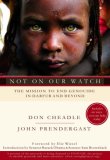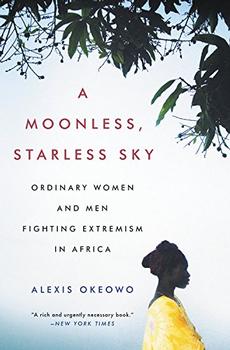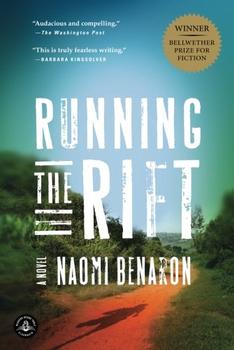Summary | Excerpt | Reviews | Beyond the book | Read-Alikes | Genres & Themes | Author Bio

 Book Reviewed by:
Book Reviewed by:
BookBrowse Review Team
Buy This Book
From the book jacket: While Don Cheadle was filming Hotel Rwanda,
a new crisis had already erupted in Darfur, in nearby Sudan. In September 2004,
then-Secretary of State Colin Powell termed the atrocities being committed there
"genocide" -- and yet two years later things have only gotten worse. 3.5 million
Sudanese are going hungry, 2.5 million have been displaced by violence, and
400,000 have died in Darfur to date.
Both shocked and energized by this ongoing tragedy, Cheadle teamed up with
leading activist John Prendergast to focus the world's attention. Not on Our
Watch, their empowering book, offers six strategies readers themselves can
implement: Raise Awareness, Raise Funds, Write a Letter, Call for Divestment,
Start an Organization, and Lobby the Government. Each of these small actions can
make a huge difference in the fate of a nation, and a people -- not only in
Darfur, but in other crisis zones such as Somalia, Congo, and northern Uganda.
Comment:
Not On Our Watch blends practical information on what people like you
and me can do to help stop the genocide in Darfur, and other crisis zones. The
authors lay out a simple six-step plan that any individual can follow and, lest individuals feel that their
little voice won't make a difference to a conflict waging 6,000 or so miles
away, the authors provide examples of how such seemingly small steps as writing a letter have
changed the course of history in the past; and how small steps not taken failed
to change events for the better.
"If every member of the House and Senate had received 100 letters from people back home saying we have to do something about Rwanda, when the crisis was first developing, then I think the response would have been different." - Senator Paul Simon, 1994.
Not On Our Watch is praised for offering practical,
inspiring advice, although one reviewer feels that the history of the region is
insufficiently clear and that the authors' personal anecdotes overshadow those
of the Sudanese living through the crisis.
In this reader's opinion, Not On Our Watch's combination of practical
information and instructions blended with memoir, history and tales of success
from past activism should provide inspiration whether the reader is taking his
or her first baby steps towards getting involved in any form of activism (or simply picked up the book because it's cowritten by a movie star), or is
already convinced that the pen truly can be mightier than the sword and is looking for specifics on this particular conflict.
A Short History of Darfur
Located in the Northeast corner of Africa (map),
about the size of Texas, the Darfur region of Sudan (map)
is home to racially mixed tribes of settled peasants who identify as African,
and nomadic herders who identify as Arab. The majority of people in both groups
are Muslim.
In prehistoric times, the peoples of what is now Darfur were related to those of
the Nile Valley. Except for an interval during the 19th
century, the Keira Dynasty ruled Darfur from the 17th century until 1916.
Gradually the Keira (who claimed Arab descent) merged with the Fur, the
agricultural people native to the region (Dar Fur means "house of the Fur" in
Arabic).
The slave trade was prominent in the Darfur Sultanate. Slaves were
obtained by raiding or trading with the stateless societies to the south and
southwest of Darfur and, over time, the Sultanate expanded its borders into
neighboring regions.
In 1821, the Egyptians conquered some of Darfur's extended lands and began to
compete in the slave trade with Darfur. In 1874 Turkish-Egyptian forces
conquered Darfur, but about a decade later a Sudanese religious leader known as
the Mahdi overthrew the Egyptian state. In 1898 British forces defeated
the Mahdist State and placed it under Anglo-Egyptian administration, and
restored the Darfur Sultanate. During WWI the Sultan played a significant
role in an Islamic, anti-Western alliance; so, the Anglo-Egyptian government
invaded, killed the Sultan and incorporated Darfur into Sudan. When Sudan
attained independence in 1956, Darfur remained under Sudanese rule.
Central Darfur is inhabited mainly by Fur farmers, the northern areas by nomadic
camel herders, and the eastern and southern zones by Arab cattle herders.
Repeated periods of droughts since the 1960s have forced the cattle and camel
herders to encroach on the rich agricultural land in the central section of
Darfur. As competition for access to water and pasture intensified, small-scale
raids turned into persistent battles among the different groups. Attempts by
successive governments to achieve peace in the region have failed and the
fighting continues.
In February 2003, two rebel groups -- the Sudan Liberation Army Movement and the
Justice and Equality Movement (with members drawn from the Fur, Masalit, and
Zaghawa ethnic groups) -- demanded that the Arab-ruled Sudanese government begin
to share power and end the economic marginalization of Darfur. The government
responded by targeting the civilian populations from which the rebels were drawn
with a scorched-earth campaign, enlisting the help of the Janjaweed (government-sponsored Arab militia made up of nomadic tribesmen) against the civilians of Darfur.
Since February 2003, the Sudanese government in Khartoum and the Janjaweed have used rape, displacement, organized
starvation and mass murder to kill more than 400,000 (the United Nations estimates 200,000) and displace 2.5 million.
Violence, disease and displacement continue to kill thousands of innocent
Darfurians every month.
Long-term peace in Darfur requires that the government of Sudan, the Janjaweed militia forces and the rebel groups of Darfur find a way to resolve their political and economic disputes. The international community managed to broker a peace deal in May 2006, but violence in Darfur actually increased in the wake of this deal.
A United Nations resolution in August 2006 authorized the deployment of a
force of over 17,000 UN troops to Darfur. However, the UN has insisted on
securing the "consent" of the Sudanese government for such a force. For its
part, the government of Sudan recently launched another attack in Darfur, in
violation of the May peace agreement, and continues to adamantly refuse the
deployment of an effective force.
Source:
Genocide Intervention.net &
The Coalition for Darfur.
Useful link:
The
Darfur score card: Find out what your legislators have done to end the
genocide in Darfur.
![]() This review
first ran in the May 24, 2007
issue of BookBrowse Recommends.
This review
first ran in the May 24, 2007
issue of BookBrowse Recommends.

If you liked Not on Our Watch, try these:

by Alexis Okeowo
Published 2018
In the tradition of Behind the Beautiful Forevers, this is a masterful, humane work of literary journalism by New Yorker staff writer Alexis Okeowo - a vivid narrative of Africans who are courageously resisting their continent's wave of fundamentalism.

by Naomi Benaron
Published 2012
Running the Rift follows Jean Patrick Nkuba, a gifted Rwandan boy, from the day he knows that running will be his life to the moment he must run to save his life, a ten-year span in which his country is undone by the Hutu-Tutsi tensions.





The Flower Sisters
by Michelle Collins Anderson
From the new Fannie Flagg of the Ozarks, a richly-woven story of family, forgiveness, and reinvention.

The House on Biscayne Bay
by Chanel Cleeton
As death stalks a gothic mansion in Miami, the lives of two women intertwine as the past and present collide.

The Funeral Cryer by Wenyan Lu
Debut novelist Wenyan Lu brings us this witty yet profound story about one woman's midlife reawakening in contemporary rural China.
Your guide toexceptional books
BookBrowse seeks out and recommends the best in contemporary fiction and nonfiction—books that not only engage and entertain but also deepen our understanding of ourselves and the world around us.